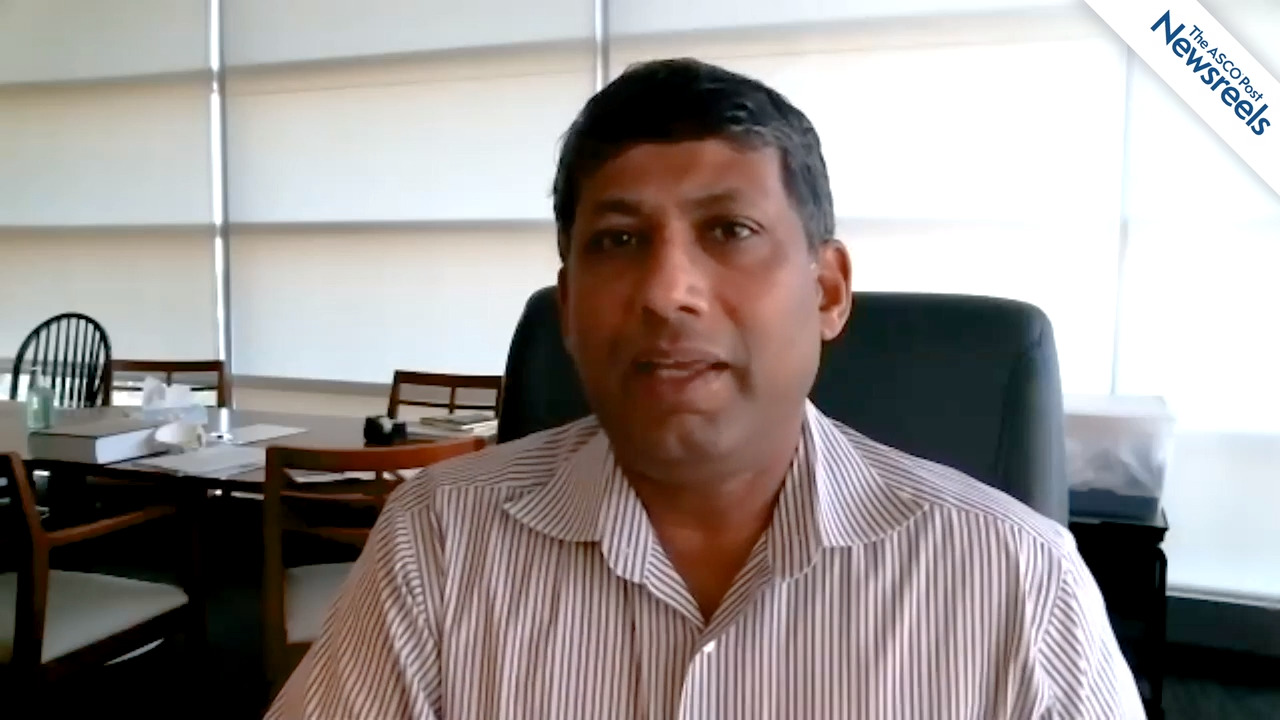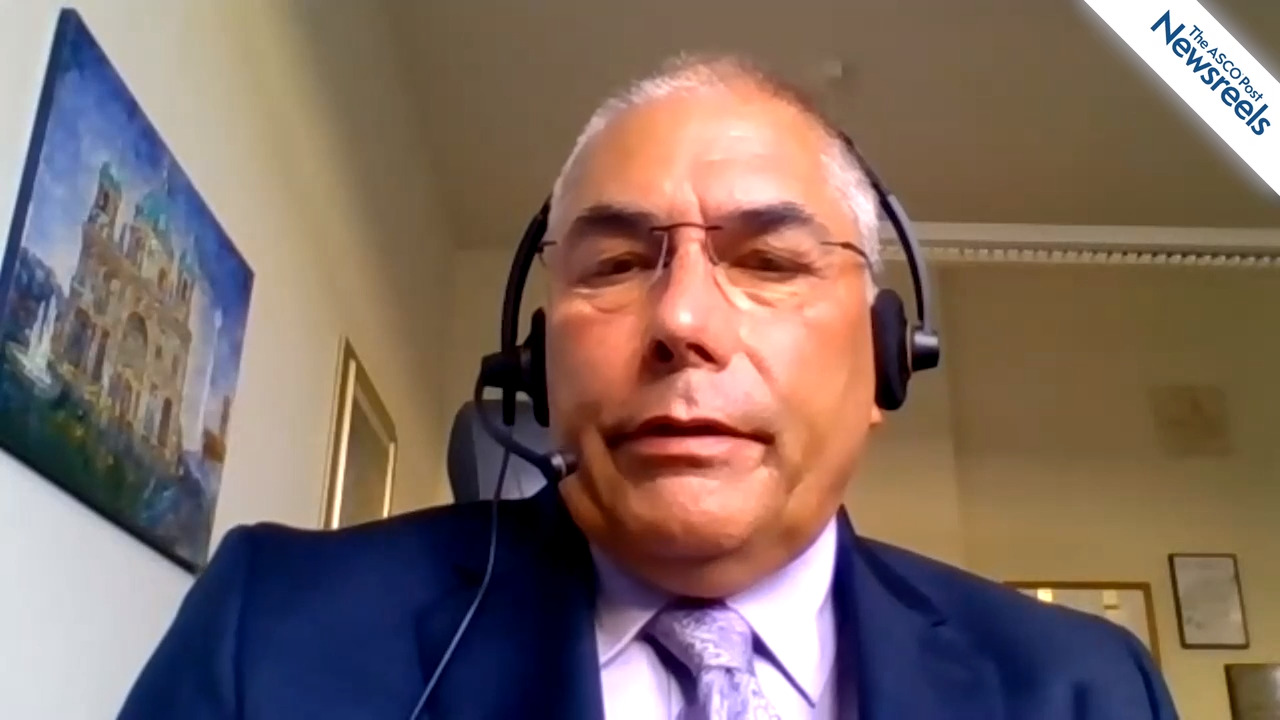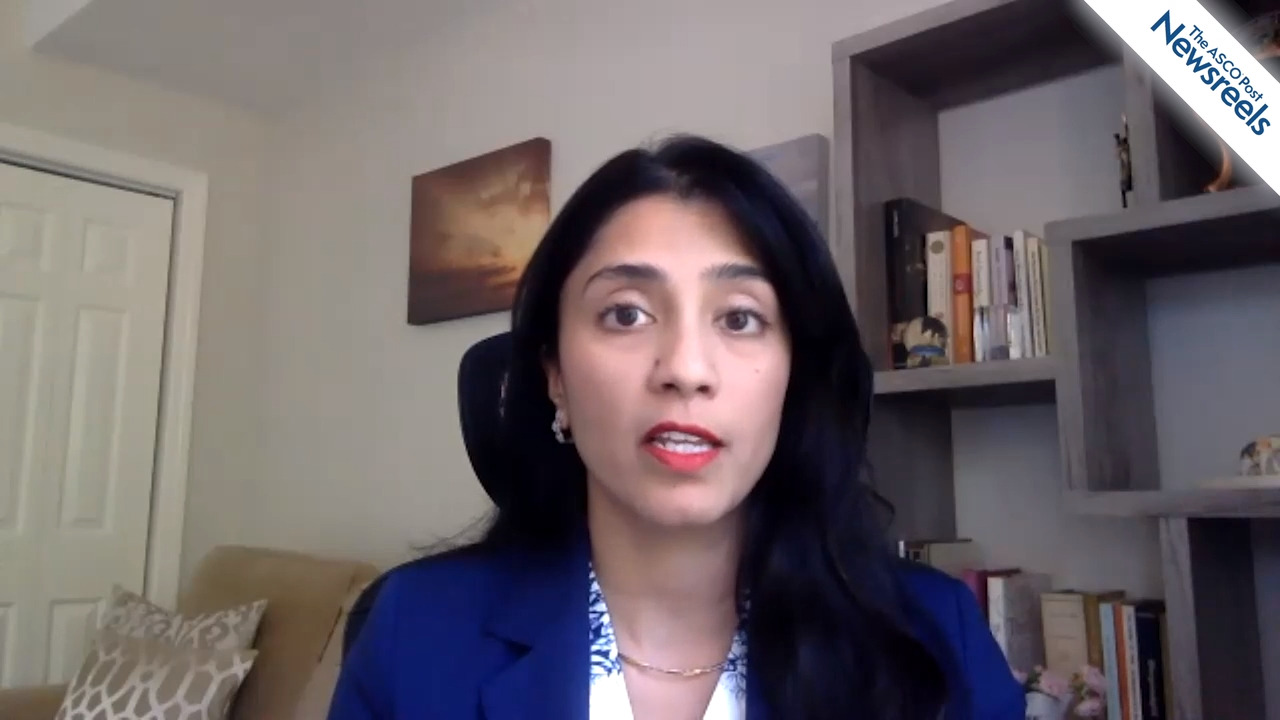Reshma Jagsi, MD, DPhil, and Narjust Duma, MD, on Diversity in Oncology: A Discussion of Evidence-Based Transformation
ASCO20 Virtual Scientific Program
Reshma Jagsi, MD, DPhil, of the University of Michigan, and Narjust Duma, MD, of the University of Wisconsin Carbone Cancer Center, discuss the state of diversity in the hematology-oncology workforce, mechanisms that lead to inequities, promising interventions, and where the field should go next (Abstract 11000).
The ASCO Post Staff
Parameswaran Hari, MD, of the Medical College of Wisconsin, discusses phase III data from a 6-year follow-up of the STaMINA trial, which compared progression-free survival among 758 patients with high-risk multiple myeloma who received a second autologous transplant and lenalidomide maintenance; consolidation with lenalidomide, bortezomib, and dexamethasone followed by lenalidomide maintenance; or lenalidomide maintenance alone (Abstract 8506).
The ASCO Post Staff
Richard L. Schilsky, MD, Chief Medical Officer of ASCO, talks about some of the most important and practice-changing findings presented this year at the ASCO20 Virtual Scientific Program, including the use of targeted and immunotherapies in earlier lines of therapy, where they have made a significant impact.
The ASCO Post Staff
Peter Reichardt, MD, PhD, of Helios Klinikum Berlin-Buch, discusses the 10-year survival analysis of 3 years vs 1 year of adjuvant imatinib for patients with high-risk gastrointestinal stromal tumor. The study found that about 50% of deaths can be avoided with longer imatinib treatment (Abstract 11503).
The ASCO Post Staff
Nirav Niranjan Shah, MD, of the Medical College of Wisconsin, explores whether autologous transplantation, in patients with relapsed diffuse large B-cell lymphoma who achieve only a PET/CT-positive partial remission, is appropriate in the era of CAR T-cell therapy (Abstract 8000).
The ASCO Post Staff
Lakshmi Nayak, MD, of Dana-Farber Cancer Institute, reviews two key abstracts on newly diagnosed primary central nervous system lymphoma and treatment with whole-brain radiotherapy, methotrexate, temozolomide, rituximab, procarbazine, vincristine, and cytarabine (Abstracts 2500 and 2501).





